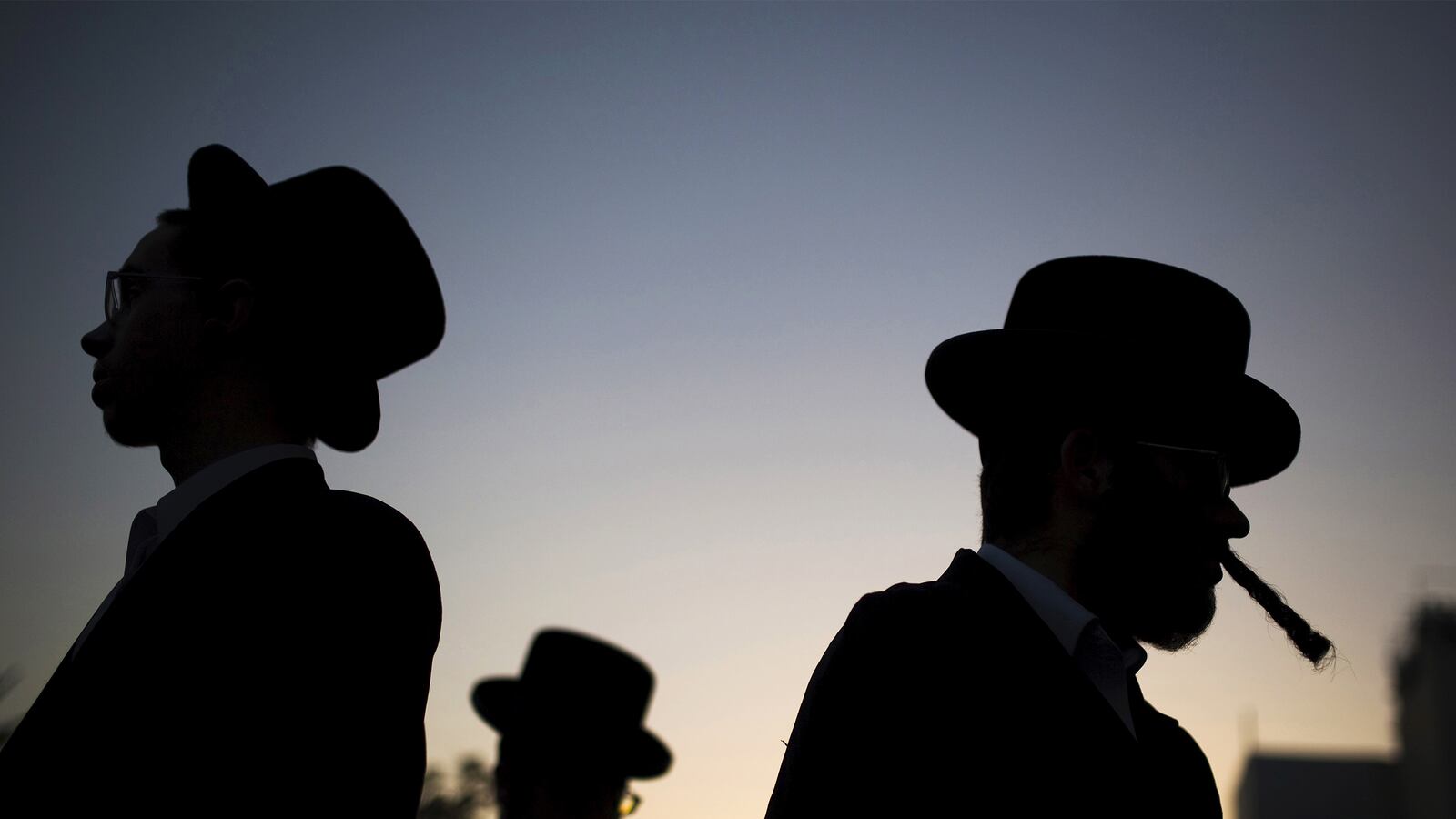The growing rift between liberal American Jews and the Israeli government was exacerbated last week when the newly appointed Minister of Religious Affairs, David Azoulay, referred to Reform Judaism as “a catastrophe for the people of Israel.”
The liberal Reform movement is important in the United States, but relatively insignificant in Israel, where the ultra-Orthodox Rabbinate is a branch of the government. Most Israeli Jews are either Orthodox or completely non-observant. But the majority of American Jews identify with the liberal Conservative and Reform movements, and this fact has become enormously divisive—particularly as the Rabbinate becomes ever more radically right-wing in its religious rulings and political pronouncements.
Azoulay, who is a member of the Sephardic ultra-Orthodox Shas party, made his remarks in the context of a meeting with Justice Minister Ayelet Shaked, who is tasked with negotiating a compromise regarding the right of Reform and Conservative women to pray as a group and read from the Torah at the Western Wall in Jerusalem.
Orthodox tradition prohibits women from praying aloud as a group or reading from the Torah in mixed-gender settings. Since the Jewish holy sites are under the authority of the Rabbinate, and therefore under the auspices of the government, the police have been tasked with enforcing Orthodox practices among worshippers at the holy site. This has led to violent clashes between praying women, Orthodox worshippers and police, with lurid newspaper images showing uniformed officers of the law dragging away middle-aged women wrapped in prayer shawls.
While there are some adherents of the Reform and Conservative movement in Israel, the vast majority are immigrants from the United States. For decades, identifying with Israel was important for Reform and Conservative Jews in the diaspora. But the hostility of the Orthodox rabbinate, coupled with the indifference of the politicians, threaten to undermine that once-axiomatic support, which was once an intrinsic part of American Jewish identity. Gary Rosenblatt, the editor and publisher of the New York Jewish Week, wrote in an editorial published last month that the growing rift between U.S. Jews and Israel had “reached crisis proportions.”
Jill Jacobs, a Conservative rabbi who is the executive director of T’ruah: The rabbinic call for human rights, a New York-based NGO, told The Daily Beast, “We [Jews] are becoming more aware that we can have a Jewish life that meets our ethical values more truly here than there. For me as a Conservative rabbi I have any number of synagogues in New York that meet all of my religious and ethical needs. We are starting to realize we cannot be our full Jewish selves in Israel.” She added, “We have noticed that the Israeli government doesn’t care what American Jews think. It’s symbolic of Israel’s growing alienation from its greatest ally.”
Twenty years ago, even a decade ago, it would have been almost unthinkable for a rabbi to express such radical alienation from Israel. The state of the Jews was an essential pillar of American Jewish identity. Now it is increasingly a partisan issue. A growing minority of ultra-Orthodox and national religious (adherents of the religious settler movement) members of the community are leaning toward the Republican Party and taking a very hawkish position on Israel-Palestine, while the more liberal Reform and Conservative remain loyal to the Democrats and, particularly among the younger generation, are questioning Israeli government policy rather than supporting it axiomatically.
The political alienation felt by Jewish Americans is exacerbated by religious alienation, with egregious incidents capturing outraged headlines in the English-language Israeli and Jewish press. In April, for example, a Jewish American immigrant to Israel was assaulted at the Western Wall in Jerusalem after he passed a Torah scroll to a group of women on the other side of the partition that separates the genders.
Rabbi Julie Schonfeld, the executive vice president of the Rabbinical Assembly, pointed out in a conversation with The Daily Beast that police detained the man who passed the Torah to the women, but did not arrest the man who assaulted him.
“Israel,” said Schonfeld, “is one of the only places on the planet where Jews cannot worship freely.” She continued, “This is wrong. It is not right that a person who holds these hateful views [as expressed by Minister Azoulay] be the minister of religion for the state that is supposed to represent all Jews.”
Schonfeld later called back to stress that her frustration came out of a sense of deep insult. “Conservative rabbis,” she said emphatically, “are among Israel’s most loyal and consistent advocates.” She added that 250 Conservative rabbis attended the recent annual AIPAC conference.
Reform and Conservative Jews have been struggling for decades to gain official acceptance from the Rabbinate, meaning that the state would recognize conversions conferred abroad by non-Orthodox rabbis, and sanction their performing weddings and other religious rites of passage in Israel. But until recently the debate was limited to the religious sphere. Now the religious rift has become political. Israel has no civil marriage or divorce.
For Jewish Americans, Prime Minister Netanyahu’s alignment with the religious Right and his indifference to their struggle for legitimacy in Israel were bad enough. But his race-baiting of Arab citizens of Israel during the recent national election, and his overt hostility toward President Obama, who won nearly around 70 percent of the Jewish vote, have proved a sort of tipping point. Jewish Americans are offended by the Netanyahu government twice over—for disrespecting their religious practices and for expressing political opinions that are anathema to their core values.
In Israel, non-observant Jews tend to be indifferent to the Rabbinate, filtering it out of their lives as much as possible. Couples that do not want their marriage performed by a rabbi fly abroad, often to nearby destinations like Cyprus, for a civil ceremony and then register their partnership with the Ministry of the Interior. In recent years it has become increasingly common, particularly in secular, liberal Tel Aviv, for couples to set up a household and have children without bothering to get married at all. Most secular Israelis have never entered a synagogue in their lives.
But for their liberal Jewish peers abroad, involvement in Reform and Conservative synagogues is often more an expression of communal identity than of religious belief. Secular Israeli Jews are sympathetic in theory, but they do not identify with their struggle for acceptance by the religious authorities and the government in Israel. The struggle of secular Israelis is not to liberalize the Rabbinate, but to separate religion and state completely. This, too, is contributing to the rift between Israel and Jewish Americans.
“It’s not that we feel unwelcome in Israel,” said Rabbi Schnofeld. “We are unwelcome. Our advocacy for Israel is welcome in the political sphere, but we as Jews and as human beings are unwelcome in the state of Israel.”
How will Jewish-American alienation from Israel affect domestic politics in the United States and bilateral relations between the two countries? A Gallup poll taken in February showed that support for Israel is beginning to bifurcate along American party lines: 83 percent of Republicans sided with Israel, while this is true for only 48 percent of Democrats. The poll was couched in strictly political terms, reflecting opinion on the Israel-Palestine conflict. But it’s worth now asking if Jews in the diaspora are drifting away because they’re also disillusioned with Israeli attitudes toward their religious practices, which range from scornful insult to bland indifference.






